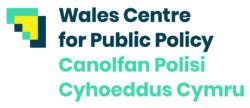Bringing together stakeholders to tackle loneliness in Wales
We partnered with Wales Centre for Public Policy to run an engagement programme involving stakeholders working to tackle loneliness in Wales and elsewhere.
The challenge
Loneliness has been a priority issue for the Welsh government and public services across Wales since before the Coronavirus pandemic. It has significant impacts on public health and wellbeing for all age groups and is linked to higher rates of depression, anxiety and mortality.
In 2020 social distancing and shielding to slow the spread of Coronavirus both increased the risk of loneliness and restricted existing activities to tackle it. Evidence shows that the people at greatest risk of loneliness before the Coronavirus pandemic have become lonelier since, and there is a considerable increase in the number of people who are lonely.
Recognising the scale and urgency of the issue, the Wales Centre for Public Policy (WCPP) wanted to bring together the many stakeholders tackling loneliness across Wales and the UK. In doing so, they hoped to:
- share knowledge and experience of tackling loneliness
- discuss local issues and challenges
- understand the impact of loneliness
- find strategies to mitigate loneliness.
Our approach
The engagement programme included a two-day digital event, a survey, blogs and video content.
We started by gathering insights through a stakeholder survey. We asked people about their current priorities, what was and was not working well for them, where they need help in their work, their ideas for what successful collaboration can achieve. We also obtained their responses to three areas of action on loneliness already identified by the WCPP.
The two-day event was shaped by the results of the survey. We used the data to shape the agenda and inform the discussions. The event programme showcased a cross-section of the work going on to tackle loneliness in Wales. We invited speakers to offer a UK-wide perspective, so the conversation on tackling loneliness in Wales through the pandemic could be set within a wider context.
We designed an interactive programme for people to explore opportunities with each other and identify where they need more support. This process culminated in five areas of action for tackling loneliness across Wales, with participants offering ideas for action in each specific area:
- the role of technology in tackling loneliness
- the role of communities in tackling loneliness
- the experience of vulnerable groups
- managing the transition from Covid-19
- improving collaboration and collective ways of working.
In addition to the event, we asked people to share their perspectives in blogs and videos. We produced two blogs, a highlights pack and a video that captured personal reflections on the event, what people taking part learned from it, and how they would apply what they learned.
So, what happened?
We brought together 133 stakeholders at the event. The feedback we got was very positive with 100% of participants telling us that they found it relevant, useful and they would recommend the event to colleagues.
The final report resulting from the programme sets out the five areas of action identified by stakeholders and the practical ideas for action that they put forward in detail. It also provides more context and information for policy and decision makers working to reduce loneliness in Wales, and outlines why these areas need to be prioritised.
The report is not only aimed at people involved in policy making and service delivery to reduce loneliness in Wales. The ideas and initiatives are intended to contribute to policy development, research and collaborative endeavours to tackle loneliness in any area.
The video below provides highlights of the major talking points from the event.

